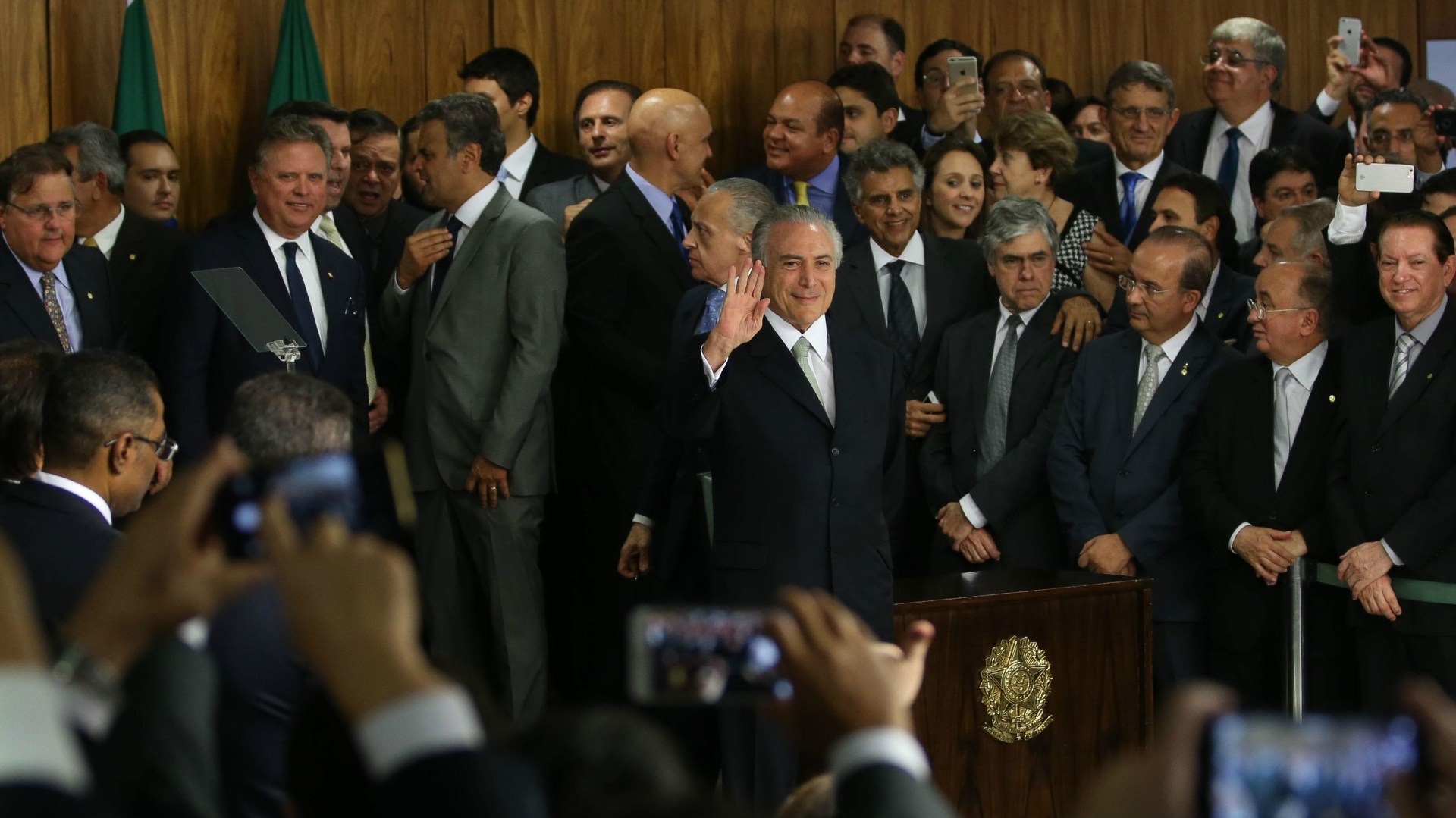Brazil has a new president, albeit temporarily. After sitting president Dilma Rousseff was accused of doctoring public finances to hide the country’s growing deficit, politicians—including the evangelical contingent—voted last week to begin her impeachment trial.
Brazil suffers its worst economy in recent history, with high rates of unemployment and inflation making the country unattractive to foreign investors. Rousseff’s alleged manipulations ahead of the presidential elections in 2014 only made things worse, some say. She denies any wrongdoing.
During the trial, which could last 180 days, vice president Michel Temer is at the helm. The 75-year-old, like about 65 percent of his countrymen (and former president Rousseff), is Catholic.
But Brazil isn’t as Catholic as it used to be (92% of the population in 1970). For years the country’s Catholics have been converting to Protestantism, and Brazil now has one of the largest evangelical populations in the world. Nearly a quarter of the population is evangelical, split by hundreds of different denominational and theological lines.
Temer faces the challenge of appealing to the largely evangelical opposition that wanted Rousseff out of office for her financial mismanagement as well as supporters in his own party, who consider her ousting a coup against the government elected by the people.
After protests by both sides, which led millions of Brazilians to the streets in recent months, Temer’s task is unifying the country.
Christians are expressing opposing views on the new government in the pulpits, in pews, and on social networks.
During the impeachment process, the Evangelical Parliamentary Front party (known by its Portuguese acronym FPE) brought together about 90 politicians to vote for Rousseff’s removal.
Before the April vote, the FPE issued an official statement that “the recent corruption scandals committed by the government and the president” were an “affront to the Brazilian people.” According to congressman and FPE chair João Campos, the majority decision not only represented the feeling of the bench, but of the nation’s evangelicals.
However, the evangelical representation in the Brazilian Congress, as a whole, cannot be considered an example of Christian ethics. About half of evangelical legislators are involved in lawsuits in various courts, facing accusations ranging from fraudulent campaign accounts to public embezzlement.
And that's not all—Eduardo Cunha, a professed evangelical connected to the Assemblies of God, was removed earlier this month as president of the lower house of Congress for obstructing a corruption investigation against him. He was next in line to the presidency after Temer.
Despite the divisions within and outside the church, the newly elected president took office with the “blessings” of believers. Shortly after his appointment, Temer met with politicians and evangelical leaders.
Campos read a Bible passage in which King David gives guidance to his son and successor, Solomon: “Then David said to Solomon his son, ‘Be strong and courageous and do it. Do not be afraid and do not be dismayed, for the Lord God, even my God, is with you. He will not leave you or forsake you, until all the work for the service of the house of the Lord is finished’” (1 Chron. 28:20, ESV).
The group prayed over the new president, who reiterated that his presidency should last, in theory, 180 days.
Temer said his interim government would be guided by the motto “order and progress,” expressed in the Brazilian flag, and also by “deep religiosity.”
“Religion is a word that comes from the Latin religio, religare, so what we want to do now, in Brazil, is a religious act, is a reconnection act of the Brazilian society with the fundamental values of the our country,” he said.
Marcos Simas is editor of Cristianismo Hoje, Christianity Today's Brazilian edition.









